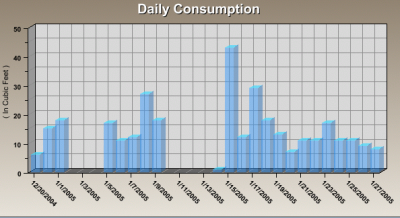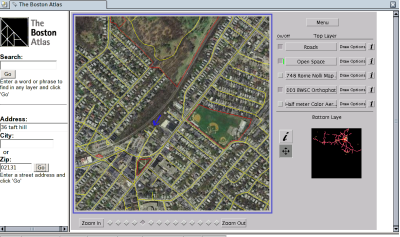Steve has pointed out several times how poorly the mainstream media do in establishing verifiable facts, instead kotowing to the requirement of providing a “balanced view” and presenting “both positions” on an issue. For example, just today the Boston Globe· runs a story entitled Bush argues his Social Security plan aids blacks·:
Under a system based on wages, the average monthly Social Security retirement benefit received by African-Americans is $775, compared with $912 for whites. In addition, many blacks never receive the benefits because a disproportionate number die before they are eligible. On average, black males die six years sooner than white males.
But some groups representing African-Americans say that Bush’s logic is faulty and that creating private accounts would hurt blacks rather than help them. They maintain that Bush is playing a race card to boost his plan.
After summarizing the position on both sides of the debate, the story notes:
Whichever side is right, the controversy has put a spotlight on what some say has been missing in the national discussion over Social Security: Is the system filled with inequities that discriminate against certain demographic groups?
Whichever side is right? There probably is a correct answer to this question, and I submit the media should be responsible for reporting that answer, even if the result is that it appears to be “taking sides” in the debate. Steve pointed me to a report from the Center on Budget and Policy Priorities· entitled African Americans, Hispanic Americans, and Social Security: the Shortcomings of the Heritage Foundation Reports·. The report notes straightforward actuarial errors made in the report the Bush administration relies on for its claim that the social security system disadvantages racial minorities. One example:
The Social Security Administration’s Office of the Chief Actuary found that Heritage both overstated the payroll taxes that workers pay for Social Security and understated the Social Security retirement benefits that workers receive, with these errors being particularly large for African Americans. The Office of the Chief Actuary found that in estimating the number of years an individual would work and make payroll tax contributions, Heritage failed to take into account the fact that some workers die before retirement and consequently contribute payroll tax for a smaller number of years than those who work into their 60s. Since a larger portion of African-American workers than of white workers die before 65, failing to take this factor into account led Heritage to make particularly large errors in its rate-of-return calculations for African Americans. For example, the actuaries found that the number of years a 20-year-old African-American man is expected to make payroll tax payments into the Social Security system is six years fewer than the Heritage methodology would predict. This flaw in its methodology led Heritage to overstate significantly the Social Security taxes that African Americans pay.
Another good example of this phenomenon is WBUR public radio host Tom Ashbrook’s show, On Point, where Ashbrook bends over backwards to make sure he’s always giving “both sides” a fair shot in the discussion, even to the point where he has take a clearly ridiculous view (for example, “maybe the people who want to ban discussion of evolution from classroom textbooks are factually right!”). National Public Radio has been demonized by the right wing for several years now, so perhaps this is an attempt to preempt further charges of bias.
The Boston Phoenix· ran a a great interview with veteran political writer and Dorchester native Jack Beatty· that focused on this same issue several weeks ago. When asked about the media’s role in the “Swift-Boat Veterans for Truth” smear ads during last year’s presidential campaign, Beatty responds:
In the past, there were terrible lies told about candidates. But I think the difference is that journalism has become a vector for these lies, and a way of dignifying them and treating them through this terrible trap of objectivity. “You say, Mr. Hitler, that the Jews are in fact parasites and need to be destroyed. You over here, Rabbi, disagree. Let’s talk.” This objectivity is strangling. You think of journalism as a mirror and a lamp. It’s strictly a mirror today.
Steve pointed out another great example of this a couple of months ago when the New York Times· ran a positive story on the Mozilla Firefox web-browser·, but declined to establish verifiable facts:
Firefox has won praise from some Internet experts for being more innovative than Microsoft’s Internet Explorer and less susceptible to malicious programs that routinely attack the Microsoft browser.
Firefox, they say, is a compact, free-standing browser designed to display Web pages rapidly while blocking pop-up ads and other unsolicited windows. Downloads of the new browser were running at the rate of a million a day last week.
While the security claim might arguably be a matter of opinion (although clearly any argument that up to this point Internet Explorer is no more subject to security vulnerabilities than Mozilla Firefox is laughable), the issue of whether Firefox “displays Web pages rapidly” is quite easy to test. In fact, I’m sure there are people already on the New York Times payroll who would be able to verify (or refute) the claim. And yet, the New York Times—like most other mainstream media publications—lets “you be the judge.”
Hey, one side says it loads faster, the other side says it doesn’t, and who are we to force our opinion on you?



